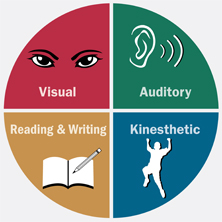Welcome back! If you're at the beginning of your homeschool journey you may be interested in the first series:
How To Plan. If you're just joining in today and want the first tip,
click here.
Now that we've gotten that little housekeeping out of the way (smile), let's jump right in.
The first tip I offered was about taking time to evaluate where you and your children are. This second tip is in relationship to that task. I'll call it Tip 1.5: Administering and Reviewing Test Scores. For those of us who live in states that require testing, now is a good time to review the scores and analysis they can offer about what your children have learned and what they need more practice on.
There are a lot of thoughts about whether to test, which tests to use, etc. I will offer you some of the popular tests homeschooling families use.
I will preface this topic by saying that testing is only one part of evaluation. Whatever test you choose you must remember that it is just a snapshot of what your child did on that particular day the test was given. There are also different kinds of tests--achievement tests, norm reference tests and aptitude tests. Each serves a purpose. Knowing what you're looking to find out about your children will help guide you to the test that will be most meaningful for your evaluation.
Achievement Tests: This type of test measures the knowledge and skills your children have acquired over a set time (school year, three-year period, etc.). They are level specific, for the most part, and/or subject specific and can be used as a tool to look back over the year to see what your children acquired during that time. I have found them to be the most useful when planning for future lessons.
Norm Reference Tests: As the name suggests, these tests compare your child to other children in the country--whether your immediate region or the entire population. These tests offer insight in how your child measures up with the general standards of children in the same grade, across the country. If you are only homeschooling for a set amount of time with hopes of getting your children back into traditional school (public or private), these tests will be helpful in making sure you're keeping up with everyone else. On the other hand, if knowing how your children measure up against the rest isn't important to you then you might not find the results of these tests useful.
Aptitude Tests: These tests attempt to make predictions on how well your children will do. They can focus on problem solving, mathematical ability, language development and then seek to project how well your children will do in said skills. There is great debate over this type of testing. Many people question its validity and accuracy.
Here are some commonly used tests:
A quick note about testing in general:
- Read up on them. (The links I've shared above are one of several that came up during a basic google search. With regards to pricing, you may find better options going through a testing and/or curriculum site.)
- Know their dates for testing and deadlines for signing up.
- Prepare your children for them (this by no means mimic the public school system!). You can prepare them a week in advance by simply going over how to complete the test, teaching a few test taking skills and even giving them timed review of lessons you've covered. A simple test-taking skill book should suffice.
- Know when you will receive the scores.
If you're already using a test and like it, do take a moment to comment below and add to what I've shared it.
With technology as it is now, many of these tests can be found online and the turn around time in receiving the results is lessened.
So now what do you do to figure out which tests will work for your children?
- Determine what you want to know about your children's learning.
- Find out what your state requires regarding testing (how often? starting year? specific test?). Then do a bit of research on it. This could be further reading on the kind of testing as well as a specific test. I have found that online homeschool groups can offer you a great deal of insight. You can find out the pros and cons before making the financial investment.
- Choose a test and take it.
Once you have the results back, use what the test found out to inform your planning. For example, if your child needs improvement in vocabulary skills you'll want to make sure that as you plan your lessons you focus on this. You might look for online resources the will help your child build their vocabulary. Perhaps your child needs additional assistance in mathematical operations like long division. In knowing this you can review and/or reteach these lessons going forward. Remember, test scores are only tools to help you better serve your child. I would suggest that you look more at the analysis offered by them than the actual number score.
I'd love to hear from you regarding your experiences with testing so far. Are you new to the whole thing? Have you been testing for years and use a specific test and love it? No matter, your feedback would be awesome. Plus, those reading this will welcome more insight.
I'll look for you next Wednesday when I'll share with you another tip/reminder as you plan your new homeschool year.
Be well.
























